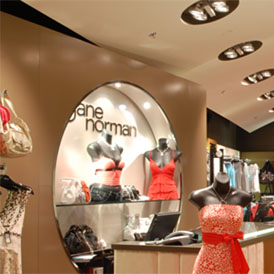Fashion chain Jane Norman goes into administration
Administrators acting for the women’s fashion chain Jane Norman are looking for a buyer for the firm’s 90 shops which shut on Saturday.

The move could put up to 1,600 jobs at risk and media reports have suggested that Jane Norman could be sold imminently.
Potential bidders in a so-called ‘pre-pack’ administration deal include department store Debenhams and knitwear firm Edinburgh Woollen Mill. Pre-pack administrations are controversial because creditors, such as suppliers, can lose out as some of the debts are scrapped.
The chain is said to have £140m of debt.
A spokeswoman for administrators Zolfo Cooper said: “Following a period of testing trading conditions, the company has experienced severe cash flow difficulties which resulted in the board requesting the appointment of the administrators.
“Discussions continue with relevant parties and further detail will be provided when made available.”
What’s causing the turbulence in the high-street?
Pressure is coming from all fronts. Clothing prices, particularly for women, have jumped as cotton prices have more than doubled in the past year. The price of wheat is up, which means bread is more expensive – and so also are tinned food, meat and cereals.
Petrol prices have soared over the last 12 months as global oil prices have leapt. That has also meant a jump in gas and electricity bills. Topping all of that is a rise in VAT, plus fears over interest rate rises and austerity cuts to come.
No wonder consumer confidence is at a record low – and household debt is still sky-high.
Read more of Channel 4 News Business Correspondent Siobhan Kennedy’s analysis of the turmoil hitting the high-street
High-street gloom
Jane Norman, which specialises in selling to women between the ages of 16 and 25, is the latest retail victim of the squeeze in consumer spending brought about the financial crisis.
Habitat’s UK shops outside London and Homeform, the owner of Dolphin bathrooms and Moben kitchens, were put into administration last week. Mothercare, Comet and HMV are among retailers closing stores.
The firm was founded in London in the 1950s and currently has in excess of 200 stores and concessions in the UK and Ireland, as well as franchises and concessions across the Middle East and Europe.
